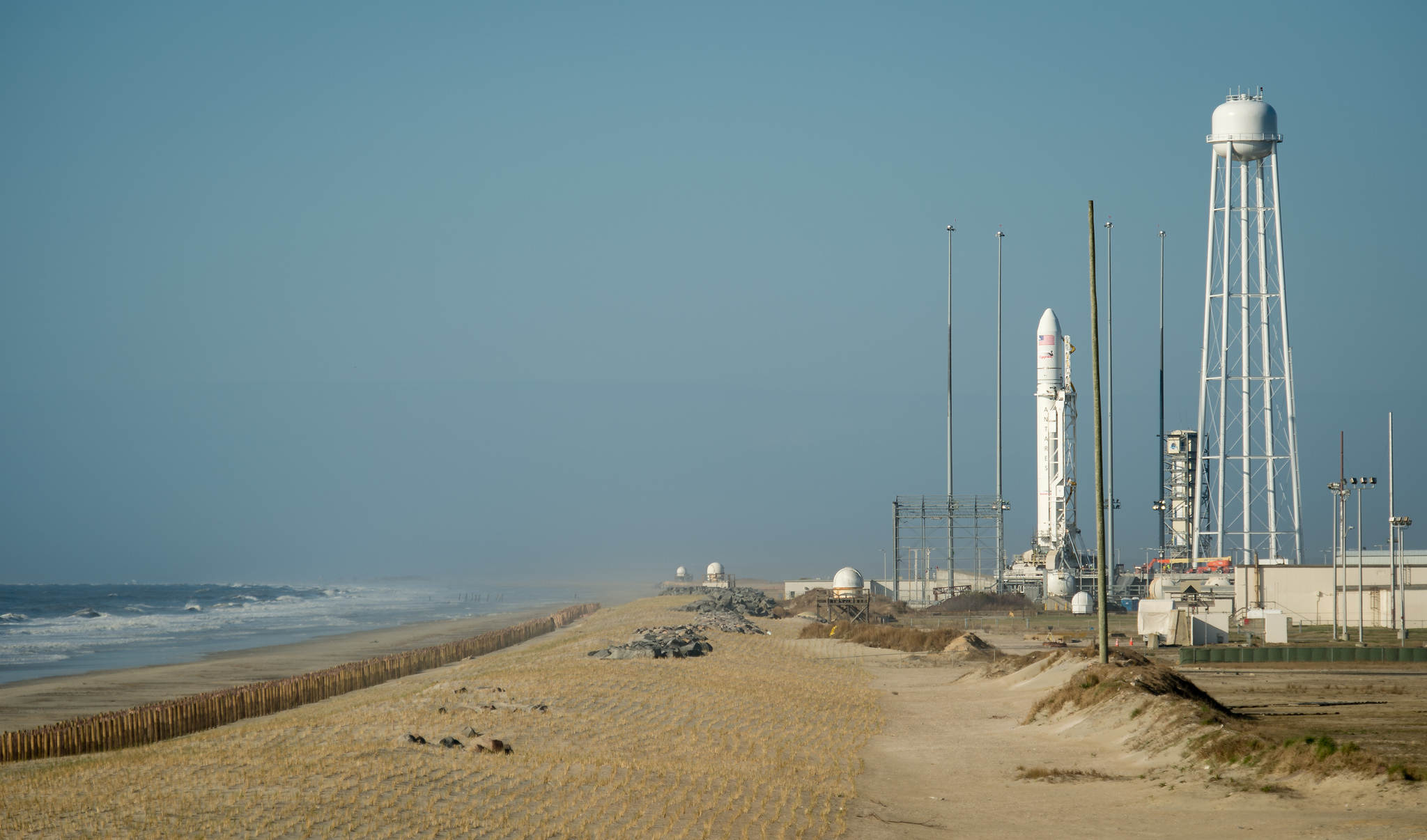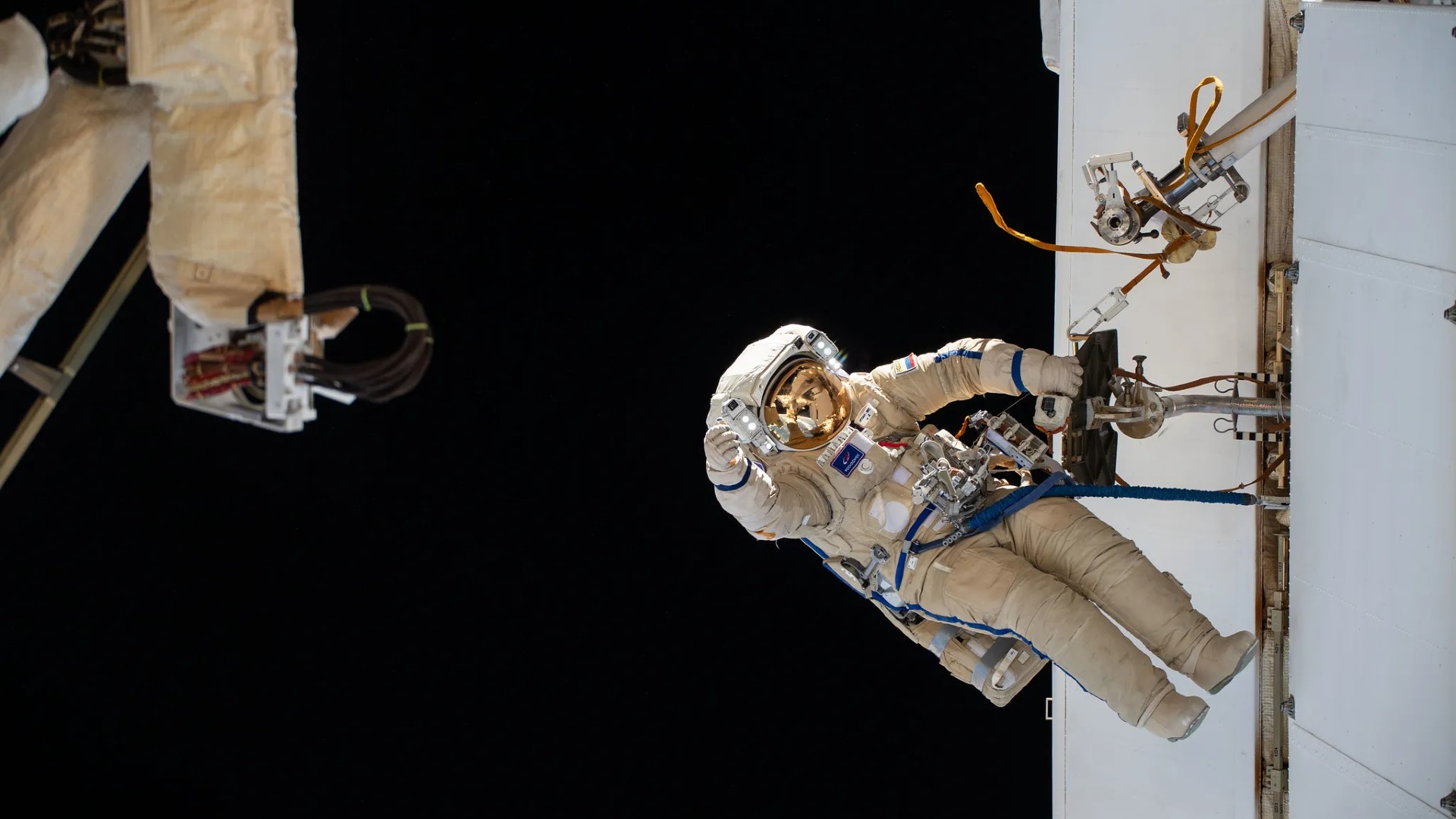Strong Winds Postpone New US Rocket's Launch Debut

Breaking space news, the latest updates on rocket launches, skywatching events and more!
You are now subscribed
Your newsletter sign-up was successful
Want to add more newsletters?

Delivered daily
Daily Newsletter
Breaking space news, the latest updates on rocket launches, skywatching events and more!

Once a month
Watch This Space
Sign up to our monthly entertainment newsletter to keep up with all our coverage of the latest sci-fi and space movies, tv shows, games and books.

Once a week
Night Sky This Week
Discover this week's must-see night sky events, moon phases, and stunning astrophotos. Sign up for our skywatching newsletter and explore the universe with us!

Twice a month
Strange New Words
Space.com's Sci-Fi Reader's Club. Read a sci-fi short story every month and join a virtual community of fellow science fiction fans!
The launch debut of a new privately built rocket will have to wait at least one more day after strong winds thwarted an attempted liftoff on Saturday (April 20).
The unmanned Antares rocket was poised to launch into orbit Saturday afternoon from a new seaside pad at NASA's Wallops Flight Facility along Virginia's Eastern Shore when the foul weather intervened. The rocket's next chance to launch occurs Sunday (April 21) at 5 p.m. EDT (2100 GMT).
Orbital Sciences had hoped to launch Antares at 5 p.m. EDT on Saturday, but unacceptably strong winds in the upper atmosphere — which could pose a risk to the rocket in mid-flight — prompted them to delay liftoff by an hour at first, then call off the attempt altogether. [LaunchPad Photos: 1st Antares Rocket Ready to Fly]
It is the second delay in three days for Antares' debut launch. A minor equipment glitch led Orbital officials to call off a launch try on Wednesday (April 17) when a data cable at the pad separated from the rocket earlier than planned.
Built by the Dulles, Va.-based spaceflight firm Orbital Sciences Corp., the Antares rocket is a 13-story booster designed to launch the company's unmanned Cygnus spacecraft on cargo delivery missions to the International Space Station. Orbital has a $1.9 billion contract to provide at least eight cargo delivery flights to the station using Cygnus and Antares.
For this first flight, the Antares rocket will not be carrying an active Cygnus spacecraft into orbit. Instead, the rocket is topped with a cylindrical "mass simulator" that mimics the shape and weight of an actual Cygnus vehicle, officials said. The mockup is also equipped with 70 sensors to measure the effects of launch on an Antares vehicle.
Orbital has also added three tiny NASA satellites — coffee-cup-size Phonesats — and a small commercial cubesat called Dove-1 to the mass simulator for this test flight. The miniature satellites will be deployed in orbit after launch, Orbital officials said.
Breaking space news, the latest updates on rocket launches, skywatching events and more!
NASA's Phonesats are experiments designed to test how well commercial smartphones can be used as the main computers on cheap satellites.
Orbital Sciences is one of two American spaceflight companies with NASA contracts for commercial resupply missions to the International Space Station. The other firm is Space Exploration Technologies (SpaceX) of Hawthorne, Calif., which has a $1.6 billion contract to fly at least 12 cargo delivery missions to the space station using its Falcon 9 rockets and robotic Dragon space capsules.
SpaceX launched its first test flight to the station in May 2012 and has flown two official cargo deliveries since then. NASA retired its space shuttle fleet in 2011 and is relying on private spacecraft to keep the space station stocked with supplies. The space agency also plans to begin flying American astronauts to the station on commercial spacecraft by 2017.
Email Tariq Malik at tmalik@space.com or follow him @tariqjmalikand Google+. Follow us @Spacedotcom, Facebookand Google+. Original article on SPACE.com.

Tariq is the award-winning Editor-in-Chief of Space.com and joined the team in 2001. He covers human spaceflight, as well as skywatching and entertainment. He became Space.com's Editor-in-Chief in 2019. Before joining Space.com, Tariq was a staff reporter for The Los Angeles Times covering education and city beats in La Habra, Fullerton and Huntington Beach. He's a recipient of the 2022 Harry Kolcum Award for excellence in space reporting and the 2025 Space Pioneer Award from the National Space Society. He is an Eagle Scout and Space Camp alum with journalism degrees from the USC and NYU. You can find Tariq at Space.com and as the co-host to the This Week In Space podcast on the TWiT network. To see his latest project, you can follow Tariq on Twitter @tariqjmalik.
